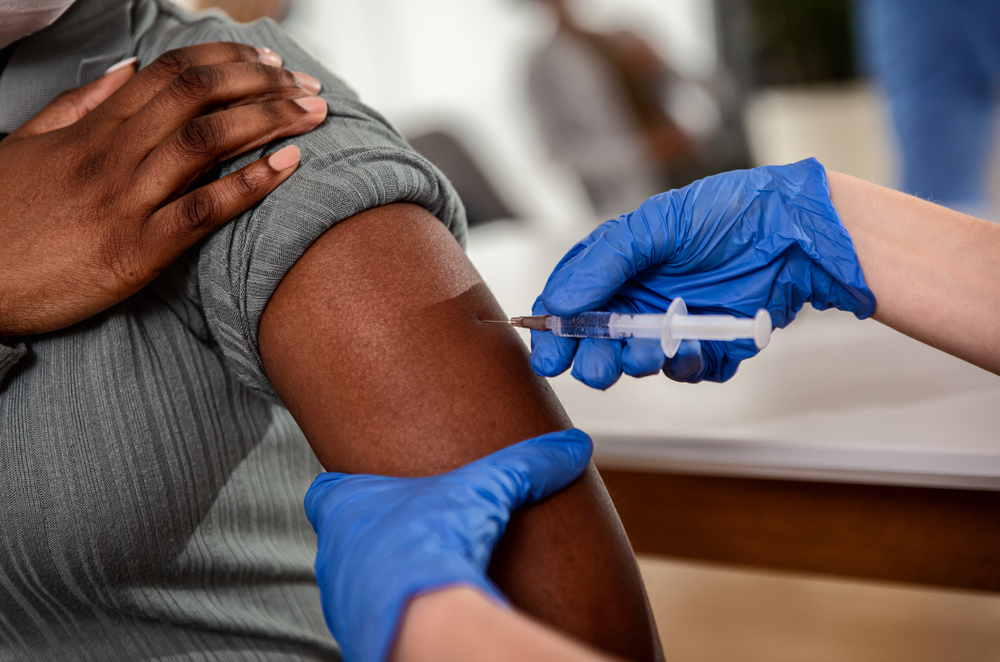Uncovering existing drugs that can treat COVID-19
16 April 2021
With millions of people around the world falling ill with COVID-19, there is an urgent need to find drugs that may help against the virus. But developing new medicines is a time-consuming process. The immediate burden of COVID-19 means there is a need to find treatments here and now.

An international group of health data researchers has therefore used genetic information to identify existing drugs that could help. Large datasets – including some combined by HDR UK from several studies – made it possible to identify the genetic variations most common in COVID-19 patients, and then to identify existing drugs which are already known to target those variations.
The Challenge
Genetic data is an increasingly important part of drug development. Genes are responsible for producing proteins and, by understanding which gene variations produce which protein levels in a particular disease, scientists can create drugs which target those variations.
But developing new drugs is a very complicated process which can take many years and much trial and error. With COVID-19 present across the globe and causing a huge burden of ill health, there is clearly a need to find treatments very swiftly.
The Solution
A new paper in Nature Medicine (April 2021) by researchers from HDR UK, VA Million Veteran Program COVID-19 Science Initiative, Harvard University, and more used genetic data to find out which existing drugs could potentially be ‘repurposed’ for the treatment of COVID-19 – specifically at an early stage in the virus, pre-hospitalisation.
The international team, which was co-led by HDR UK researchers Liam Gaziano and Dr. Adam Butterworth at the University of Cambridge, first sought to understand the genetic variations present in people with the virus.
Since genes are responsible for producing proteins, that meant exploring which protein levels are different in people who have COVID-19. The researchers also looked at gene expression variations – in other words, differences in how cells ‘read’ the instructions from DNA about what they should do and when.
Having identified which genetic variations were most common in COVID-19 patients, the researchers then cross-referenced this with information on existing drugs. This enabled them to find out which drugs are already proven to work against the genetic variations seen in COVID patients.
Lessons learnt
As Dr. Butterworth outlined in a Twitter thread, the researchers identified two proteins that are common in patients with COVID-19 and particularly associated with hospitalisation: ACE2 and IFNAR2. Drugs already exist which target both of these proteins, with ACE2 inhibitors commonly prescribed to treat heart problems and high blood pressure.
The team therefore suggests that, in trying to find drugs to treat early-stage COVID-19, we should prioritise trials of medicines that target these two proteins.
Impacts and Outcomes
By prescribing medications to people shortly after they have been diagnosed with COVID-19, it may be possible to reduce the number of people becoming seriously ill with the virus. This would mean fewer people having to go to hospital or into critical care, and hopefully fewer deaths.
More broadly, the study has shown the value of collaboration and sharing in health data research. The team analysed data from more than 7,500 patients who had been hospitalised with COVID-19, much of it made available through the COVID-19 Host Genetics Initiative. This is an international consortium to which researchers are contributing information they already have from other studies.
The team at the University of Cambridge, for instance, has conventionally focused its research on heart disease. But it was quickly possible to link the team’s existing data to COVID diagnoses, identifying which patients in an existing heart disease study had been diagnosed with the virus.
This sort of uniting and reuse of data is helping researchers make quick, robust and swift discoveries – and will have an impact on future studies, whether on COVID or other conditions.
Abstract
Drug repurposing provides a rapid approach to meet the urgent need for therapeutics to address COVID-19. To identify therapeutic targets relevant to COVID-19, we conducted Mendelian randomization analyses, deriving genetic instruments based on
transcriptomic and proteomic data for 1,263 actionable proteins that are targeted by approved drugs or in clinical phase of drug development. Using summary statistics from the Host Genetics Initiative and the Million Veteran Program, we studied 7,554
patients hospitalized with COVID-19 and >1 million controls. We found significant Mendelian randomization results for three proteins (ACE2, P= 1.6 × 10−6; IFNAR2, P= 9.8 × 10−11 and IL-10RB, P= 2.3 × 10−14) using cis-expression quantitative trait loci
genetic instruments that also had strong evidence for colocalization with COVID-19 hospitalization. To disentangle the shared expression quantitative trait loci signal for IL10RB and IFNAR2, we conducted phenome-wide association scans and pathway
enrichment analysis, which suggested that IFNAR2 is more likely to play a role in COVID-19 hospitalization. Our findings prioritize trials of drugs targeting IFNAR2 and ACE2 for early management of COVID-19..
Read the full Research Article



